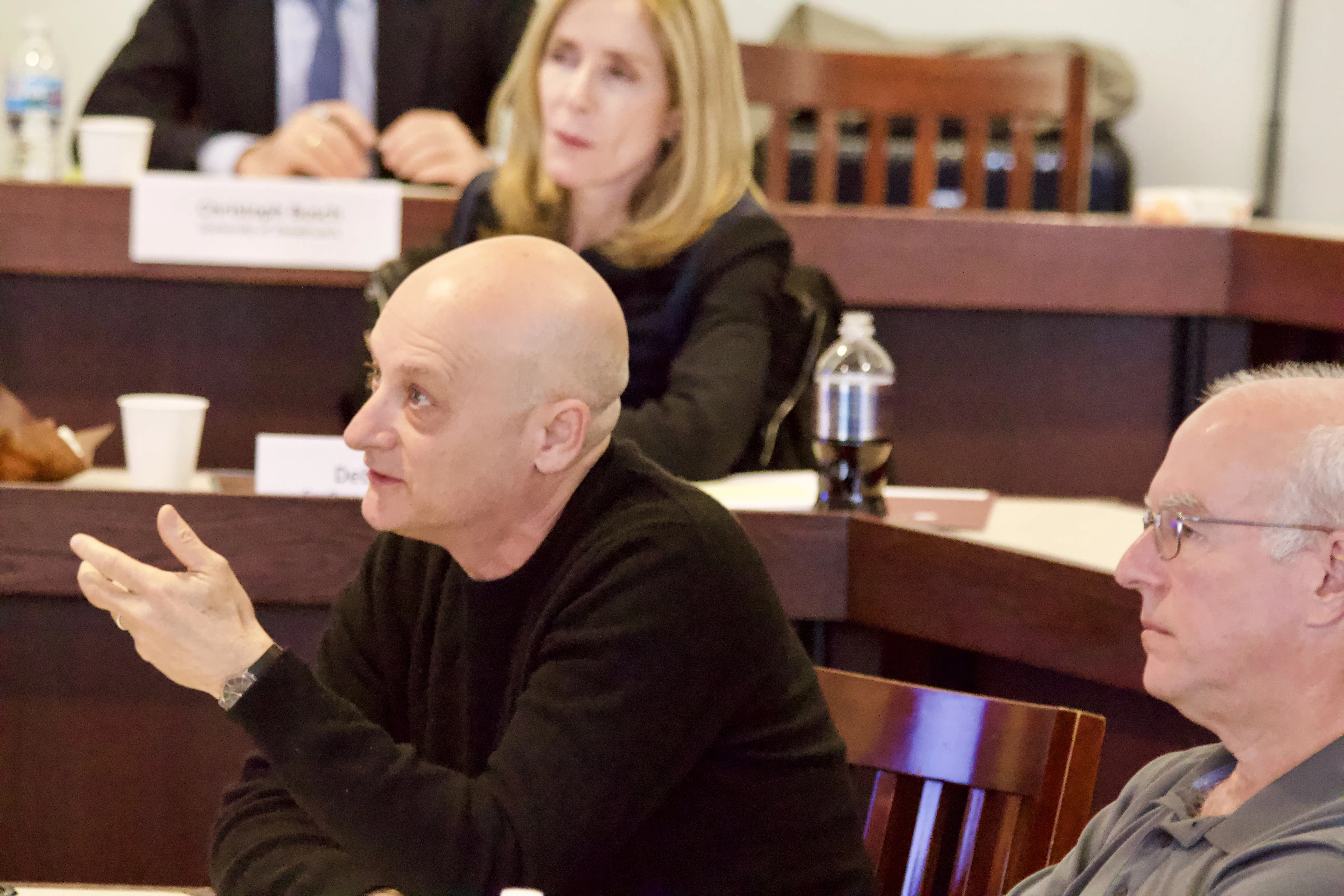Personalizing the Law

Imagine a future in which technology tells people how fast to drive by creating personalized directives that factor in weather, driving habits, and available sunlight, or helps courts decide whether to impose a shorter sentence on a defendant with a brain defect that hampers his judgment of right and wrong. Big data, prediction algorithms, and the ability to communicate instantaneously make such personalization achievable.
It just turns out making laws that incorporate predictive outcomes can get a bit messy.
That was the focus of the 2018 University of Chicago Law Review symposium, “Personalized Law,” which was co-sponsored by the journal, the Law School, and the Coase-Sandor Institute for Law and Economics. For a day and a half, 26 scholars from around the world met the messiness head on and picked apart whether traditional rules and standards―in areas like property rights, contracts, and criminal law―would be more efficient, fair, or equal with more personalization.
“It was inspiring to read the papers and listen to symposium participants present and react to each other’s ideas,” said Omri Ben-Shahar, the Leo and Eileen Herzel Professor of Law, the Kearney Director of the Coase-Sandor Institute for Law and Economics, and one of the main organizers of the event. “Where better than the University of Chicago Law School to discuss how Big Data is evolving and creating challenges that we’ll need to confront? I hope some of the scholarship that will come out of this conference will inspire a new thinking about a brave new world.”
Many participants described how highly contextualized law is now and how technology can lower the cost of discovering relevant personal information. But depending on the area of law examined, opinions differed about whether personalization is worth the challenges.
Most agreed that personalization could lead to a more efficient and even fairer legal system by allowing the customization of traditional—and more static— rules and standards. Instead of considering only the act behind a crime, for instance, judges and juries could consider neuroscientific evidence that sheds light on a defendant’s culpability. Big Data tools may also reduce the bias that a judge or jury may have toward a defendant due to non-legal reasons, such as race.
Personalization could also apply to consumer contracts by personalizing the mandatory protections offered in such contracts, for example, by looking into past purchase behaviors of the consumers. As Ben-Shahar and Ariel Porat, the Fischel-Neil Distinguished Visiting Professor of Law, illustrated in a new article, there is a strong case for personalizing the cooling off duration that consumers receive under various protective laws.
“A 72-hour right to withdraw from a loan contract may be useless to the weakest consumers who need the most risky and complicated loan deals,” Porat said. “Conversely, a two-week right to withdraw from an online sales contract might not be needed by sophisticated repeat shoppers.”
Porat and Ben-Shahar think personalization could help get around the fact that uniform protections for consumers can misfire and create harmful effects.
Lee Fennell, the Max Pam Professor of Law, co-director of the Kreisman Initiative on Housing Law and Policy, and Ronald H. Coase Research Scholar, showed that personalization can help people tailor precommitments to address self-control problems. One example would build on the IRS’s “split-refund option,” which allows taxpayers to designate separate accounts to divide refunds―such as one account to get current on essential bills and others to enable more discretionary spending.
“Precommitments are voluntary, and there are limits to how tightly people can be bound to the precommitments they make,” Fennell says “But personalized partitioning of resources offers a way to constrain consumption, even if those partitions can be broken.”
Personalization raises interesting challenges, however, including the varying quality of data sources, substantial loss of privacy―such as the constant tracking of one’s car speed―and in some cases potential unfairness.
Anthony Casey, Professor of Law and Mark Claster Mamolen Teaching Scholar, and his co-author Anthony Niblett, a professor at the University of Toronto Faculty of Law, cautioned that before we address the challenges, lawmakers must first identify and explain a new law’s objective, something that was less-crucial with a “one-size-fits-all” law.
“Lawmakers must decide how and when to communicate these new and personalized laws to those who must comply,” Casey said, adding “Without answers to what the law’s objective is and when to communicate it, there’s a big risk that these laws will be ad hoc and unconnected.”
Lior Strahilevitz, the Sidley Austin Professor of Law, and his coauthor, Matthew Kugler, a professor at Northwestern University Pritzker School of Law, noted in their paper “Assessing the Empirical Upside of Personalized Criminal Procedure” that personalization has already found its way into pockets of criminal procedure. For example, Miranda warnings must be tailored when read to juveniles or people with limited English proficiency, and people walking in high-crime neighborhoods have diminished protection against searches.
Instead of trying to answer whether the law of criminal procedure should incorporate individual differences in privacy expectations, personality, and cognitive abilities, they adopted an empirical approach to assess the extent to which criminal procedure could be meaningfully personalized. Their conclusion was that data-driven efforts to personalize criminal procedure may not be worth the trouble.
The two found that their most sophisticated models that took account of demographic, personality, and life-experience, never predicted more than an 11 percent variation in consent and police escalation scenarios and a variance of no more than 6 percent in privacy expectations. They concluded this variation is inadequate to justify the complexity and complications of personalization.
Deborah Denno, a professor at Fordham University School of Law, on the other hand, thinks neuroscience research can change our concept of what constitutes human nature and how the law should handle dangerous criminal behavior.
“Innovations such as functional Magnetic Resonance Imaging let us examine living brains in a way like never before. The research has changed our understanding of intentionality and consciousness,” she said.
Denno believes more personalized legal rules could help lawmakers hone fairness within the criminal justice system. In that respect, she says, new scientific trends are important because they enable a more refined and accurate conception of a defendant’s level of culpability and blameworthiness and therefore a more effective means of punishing or rehabilitating or deterring such individuals.
Elizabeth Nielson, ’18, Symposium & Reviews Editor of the Law Review said she found the symposium compelling.
“The presentations were interesting on both a micro and macro level. The speakers and the results of their careful research make me excited to start my career as a lawyer. I am intrigued to see how the personalization of law might mold the profession I am entering,” she said.



